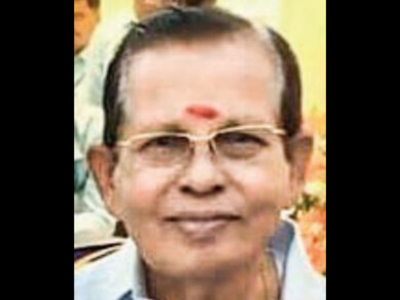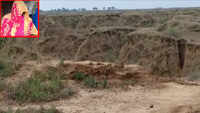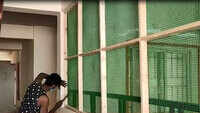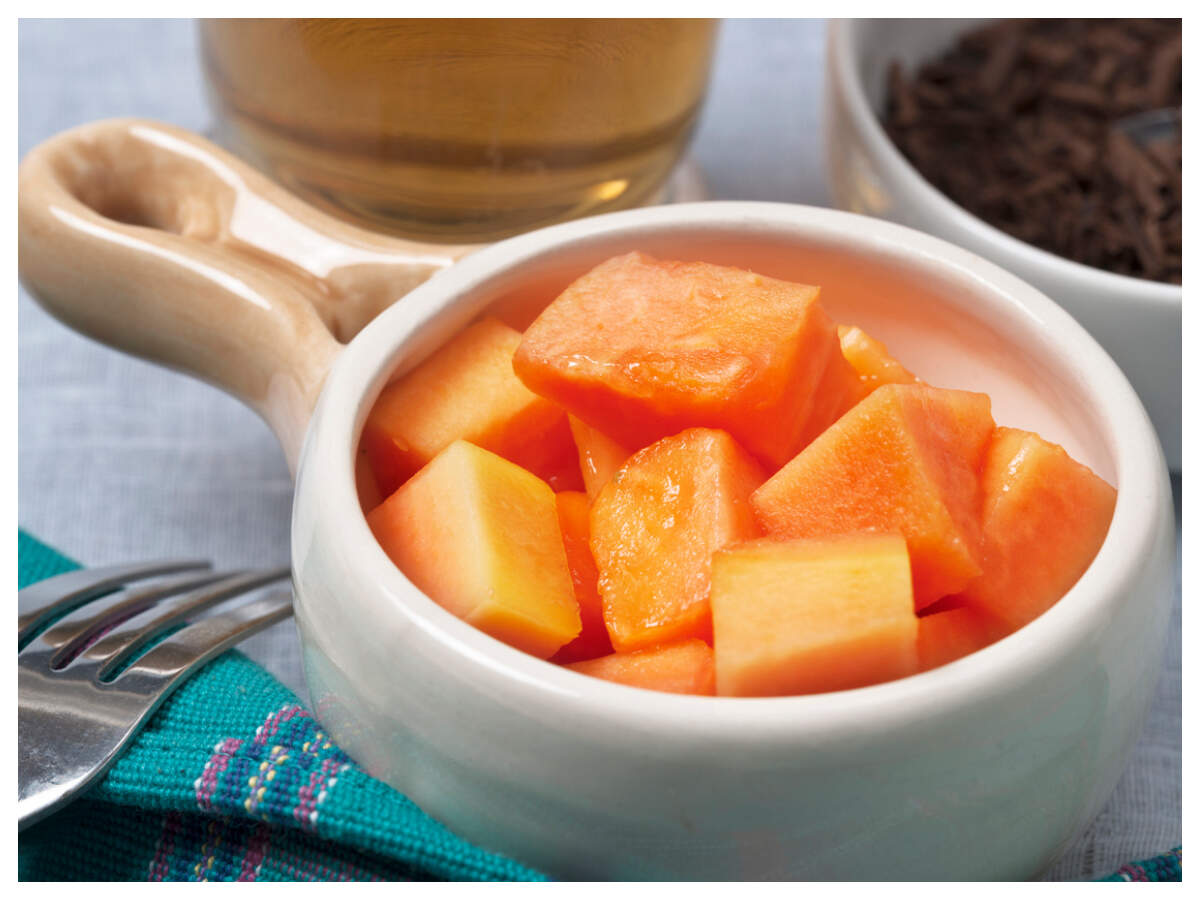
TIRUNELVELI: Unable to come to terms with the fact that he had been diagnosed Covid-19 positive, Hari Singh, 80, owner of the famous “Iruttu kadai halwa” in Tirunelveli, hanged himself to death from the bathroom window of his room at a private hospital here around Thursday noon. The tragedy happened hardly an hour after the result of his swab sample test was conveyed to him and when he was about to be moved to an isolation facility.
Police said Singh was admitted to the hospital at Perumalpuram with urinary tract infection two days ago. In keeping with the norms, swab samples were collected from him and his relatives for Covid-19 test. He and his son-in-law tested positive and the results arrived at 11am. Perumalpuram police are probing it as unnatural death. Police suspect depression may have driven the octogenarian to the extreme step as he was found hanging from a towel in the bathroom. Perumalpuram police registered a case of unnatural death and is probing, said deputy commissioner of police (law and order) Tirunelveli city S Saravanan. Investigation officer M Chezhian said the body was removed by two personnel in PPE kits and sent to the Tirunelveli MCH. It was handed over to his relatives after postmortem in the evening for cremation. The ground floor of the hospital was disinfected and doctor and hospital staff quarantined.
Customers recall Hari Singh as a simple man clad in a white shirt and dhoti seen huddled near the wooden cash box of his small shop next to the Arulmigu Nellaiappar temple car. With a warm smile he served hot mouth-watering halwa which has come to be known for its unique taste. The nearly century-old ‘Iruttu Kadai, established by his Rajput family and consolidated by his father Bijli Singh, got its name for its ambience. Unlike the well-illuminated modern-day sweet shops, this shop was lit by a single bulb, which earlier used to be an oil lamp in the dark (iruttu), earning its name. The shop has a foldable wooden door, wooden table and shelf. Many others have tried to establish halwa business by indirectly identifying themselves with the little shop which didn’t have a name board. A few other brands opened multiple branches but their halwa failed to match Iruttu Kadai’s taste and its strong fan base across India and abroad.
“The shop is open till 9 pm on regular days. During Sabarimala season and Deepavali, the stock hardly lasted 45 minutes,” says K Balaji, a resident of Bharathiyar Street. Hari Singh also did not sell more than 10 kgs per person during festivals as he did not want other customers to return. The halwa is prepared in a traditional stove fuelled by cashewnut husk that helps maintain texture and quality, from 6 am to noon. It is then packed in oil packets and kept in white carry bags in quantities of 1 kg, 500 grams and 250 grams and readily handed over to consumers at the shop.
Priced at Rs 220 a kilogram, it also remains the costliest halwa in the city while others sell it for Rs 200 or lesser. Customers queued in front of the shop well ahead of the opening time of around 5.15 pm. Singh also enjoyed serving 50 grams of halwa on a banana leaf at Rs 10 by scooping it out of the metal vessel. “He sold it with a smile and this has a strong customer base for its direct connect,” says P Perumal, a local resident. He also used to hand over a handful of mixture free of cost when customers extended their hand after relishing his halwa. Not many know that the same halwa is sold in a sweet shop run by his relative ten shops away.
Police said Singh was admitted to the hospital at Perumalpuram with urinary tract infection two days ago. In keeping with the norms, swab samples were collected from him and his relatives for Covid-19 test. He and his son-in-law tested positive and the results arrived at 11am. Perumalpuram police are probing it as unnatural death. Police suspect depression may have driven the octogenarian to the extreme step as he was found hanging from a towel in the bathroom. Perumalpuram police registered a case of unnatural death and is probing, said deputy commissioner of police (law and order) Tirunelveli city S Saravanan. Investigation officer M Chezhian said the body was removed by two personnel in PPE kits and sent to the Tirunelveli MCH. It was handed over to his relatives after postmortem in the evening for cremation. The ground floor of the hospital was disinfected and doctor and hospital staff quarantined.
Customers recall Hari Singh as a simple man clad in a white shirt and dhoti seen huddled near the wooden cash box of his small shop next to the Arulmigu Nellaiappar temple car. With a warm smile he served hot mouth-watering halwa which has come to be known for its unique taste. The nearly century-old ‘Iruttu Kadai, established by his Rajput family and consolidated by his father Bijli Singh, got its name for its ambience. Unlike the well-illuminated modern-day sweet shops, this shop was lit by a single bulb, which earlier used to be an oil lamp in the dark (iruttu), earning its name. The shop has a foldable wooden door, wooden table and shelf. Many others have tried to establish halwa business by indirectly identifying themselves with the little shop which didn’t have a name board. A few other brands opened multiple branches but their halwa failed to match Iruttu Kadai’s taste and its strong fan base across India and abroad.
“The shop is open till 9 pm on regular days. During Sabarimala season and Deepavali, the stock hardly lasted 45 minutes,” says K Balaji, a resident of Bharathiyar Street. Hari Singh also did not sell more than 10 kgs per person during festivals as he did not want other customers to return. The halwa is prepared in a traditional stove fuelled by cashewnut husk that helps maintain texture and quality, from 6 am to noon. It is then packed in oil packets and kept in white carry bags in quantities of 1 kg, 500 grams and 250 grams and readily handed over to consumers at the shop.
Priced at Rs 220 a kilogram, it also remains the costliest halwa in the city while others sell it for Rs 200 or lesser. Customers queued in front of the shop well ahead of the opening time of around 5.15 pm. Singh also enjoyed serving 50 grams of halwa on a banana leaf at Rs 10 by scooping it out of the metal vessel. “He sold it with a smile and this has a strong customer base for its direct connect,” says P Perumal, a local resident. He also used to hand over a handful of mixture free of cost when customers extended their hand after relishing his halwa. Not many know that the same halwa is sold in a sweet shop run by his relative ten shops away.

Coronavirus outbreak
Trending Topics
LATEST VIDEOS
City
 On cam: Municipal corporation demolishes dilapidated overhead water tank in Gujarat’s Rajkot
On cam: Municipal corporation demolishes dilapidated overhead water tank in Gujarat’s Rajkot  UP: Pregnant woman out to relieve herself in a field gives birth, wild animal takes away newborn
UP: Pregnant woman out to relieve herself in a field gives birth, wild animal takes away newborn  Mumbai: Cop celebrates birthday at NGO office, enquiry ordered after video goes viral
Mumbai: Cop celebrates birthday at NGO office, enquiry ordered after video goes viral  On cam: Social distancing norms flouted in presence of BJP MP at Aligarh station in UP
On cam: Social distancing norms flouted in presence of BJP MP at Aligarh station in UP
More from TOI
Navbharat Times
Featured Today in Travel
Get the app





